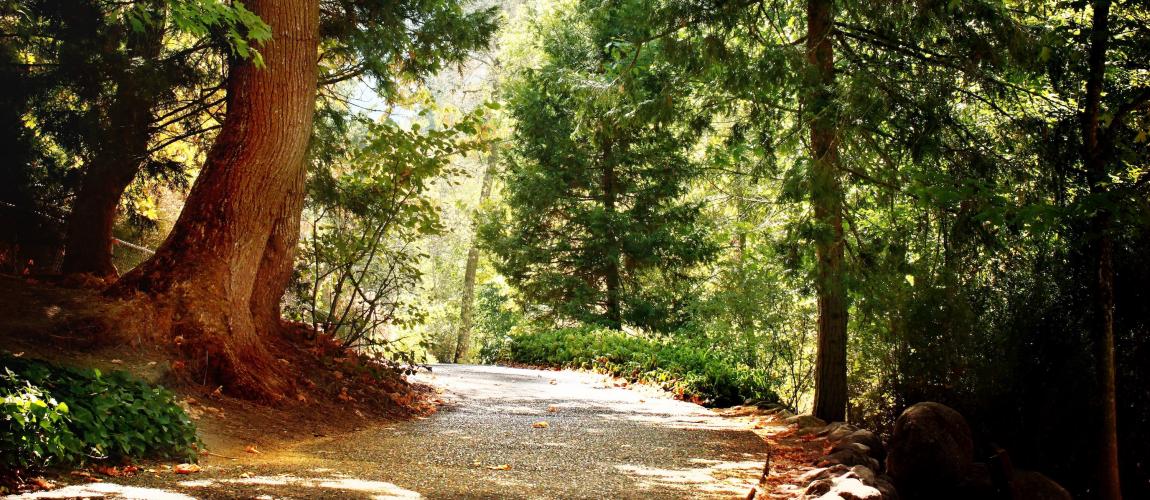

Dappled Things
George Orwell’s 1984, like any dystopian novel, isn’t exactly an uplifting read. It rather unforgivingly portrays humans at their worst, and makes us question whether or not we are spinning toward a place without redemption. Its characters live in an atmosphere of constant fear, hatred, and uncertainty.
I have taught this book to sophomores many times, and I believe it holds important political and sociological lessons for them. But I don’t want to write about those here. What I want to write about is an inconspicuous little phrase that a student plucked out today which communicated warmth instead of warning. “Pools of gold” was the phrase, and the excerpt goes like this: “Winston picked his way up the lane through dappled light and shade, stepping out into pools of gold wherever the boughs parted. Under the trees to the left of him the ground was misty with bluebells. The air seemed to kiss one's skin. It was the second of May” (Orwell 117).
This is the point in the story where Winston breaks the rules and leaves his deprived, oppressed existence in the city to venture out into the woods for an illegal rendezvous. The government’s constant surveillance restricts any natural relationships from developing in its attempt to sever bonds and monopolize loyalties. It tries to suppress most human instincts except those that serve its purpose (such as rage toward the enemy of its choice). Winston knows, deep down, that there is something very wrong with the way that he and everyone else is living, and he meets his lover in the woods knowing it will only be a matter of time until they are caught and put to certain death.
But for the time being, he is stepping in “pools of gold”, the places where sunlight breaks through the canopy of shade creating a dancing, dappled effect on the ground. I love the word “dappled” and the image it creates. It is why I love the paintings of Monét and the poem “Pied Beauty” by Gerard Manley Hopkins, which begins, “Glory be to God for dappled things”. The beauty of dappling lies in the contrast that is created when light and dark mingle together. A word like “spotted” or “marked” might carry negativity, but “dappled” always improves its canvas. A dappled pony or a child’s cheek dappled with freckles makes everything right with the world. Orwell’s outlook for the future of humanity may be dark, but the purity of the natural world cannot be sullied. For a few fleeting hours, amongst the trees and the bluebells, Winston feels whole. He is reminded of what is primal, what is good, what is true.
I’m often asked why the English curriculum is full of “depressing books”. My answer of course is because of the profound lessons they teach. And the presence of darkness helps us appreciate the light. Both exist in nature and in human nature. And there is beauty in understanding.
Quote selected from 1984 by George Orwell. Signet, 1977.


Be the first to comment!